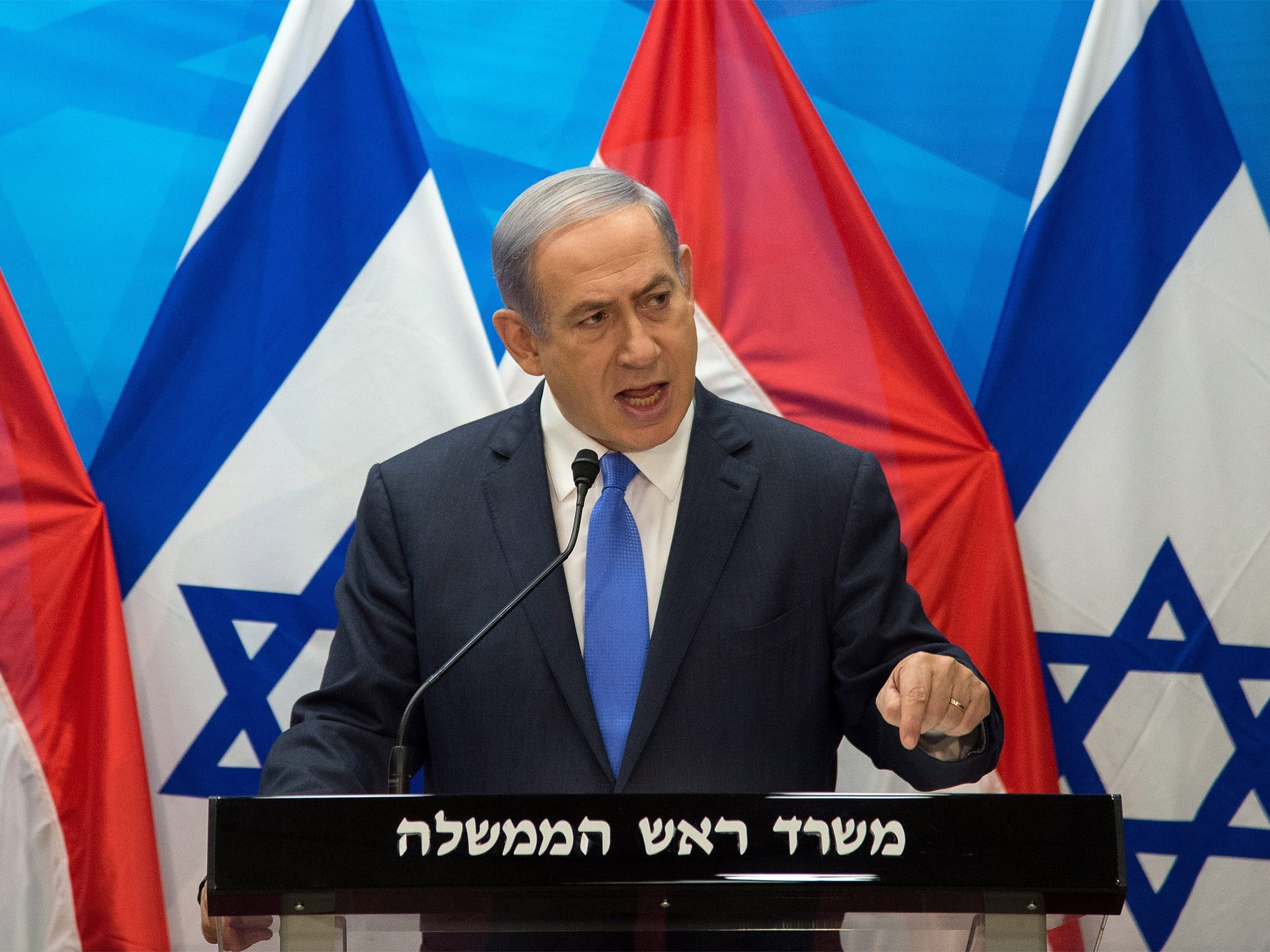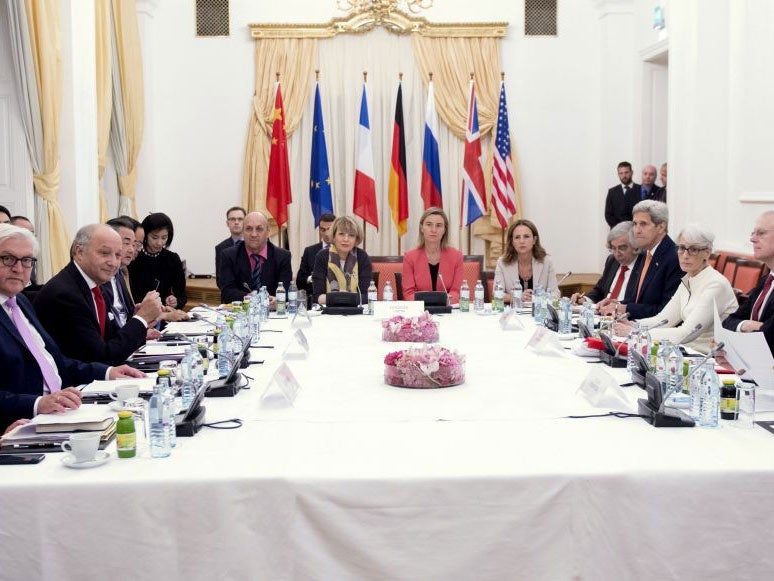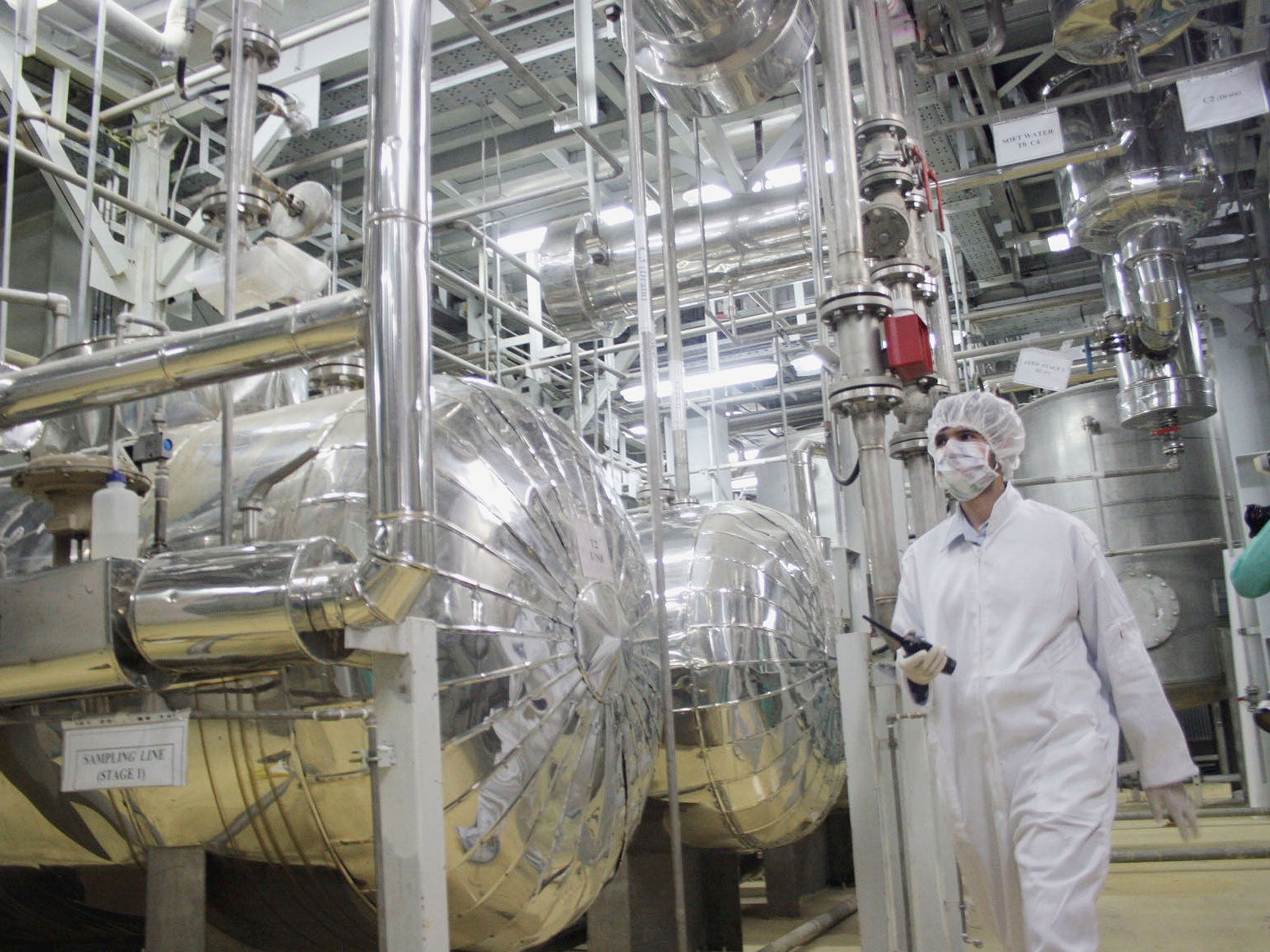Iran nuclear deal: Israel's Benjamin Netanyahu condemns 'bad mistake of historic proportions'
Another Israeli minister claimed Iran had been given a 'licence to kill'

Your support helps us to tell the story
From reproductive rights to climate change to Big Tech, The Independent is on the ground when the story is developing. Whether it's investigating the financials of Elon Musk's pro-Trump PAC or producing our latest documentary, 'The A Word', which shines a light on the American women fighting for reproductive rights, we know how important it is to parse out the facts from the messaging.
At such a critical moment in US history, we need reporters on the ground. Your donation allows us to keep sending journalists to speak to both sides of the story.
The Independent is trusted by Americans across the entire political spectrum. And unlike many other quality news outlets, we choose not to lock Americans out of our reporting and analysis with paywalls. We believe quality journalism should be available to everyone, paid for by those who can afford it.
Your support makes all the difference.Benjamin Netanyahu has condemned the nuclear deal struck with Iran, calling it a “bad mistake of historic proportions” that would allow "aggression and terror" to continue.
The landmark agreement was reached with six nations including Britain and the US this morning in Vienna, with Tehran allowing possible UN inspections at its nuclear sites in exchange for the lifting of sanctions.
The Israeli Prime Minister said that the proposed conditions left Iran “a sure path to nuclear weapons”, removing restrictions he believed were necessary to stop military development.

He added: “Iran will get a jackpot, a cash bonanza of hundreds of billions of dollars (after sanctions are lifted), which will enable it to continue to pursue its aggression and terror in the region and in the world.
"This is a bad mistake of historic proportions.”
A UN weapons embargo and missile ban will remain in place for at least five more years and sanctions will be restored if Iran breaks conditions aimed at preventing it from being able to create a nuclear bomb.
But those assurances were not sufficient to allay the fears of Israeli politicians.
Israel's deputy foreign minister accused Western powers of surrendering to Iran and vowed his country would do everything it could to stop the deal being endorsed by the UN Security Council.

“This deal is a historic surrender by the West to the axis of evil headed by Iran,” Tzipi Hotovely wrote on Twitter.
“Israel will act with all means to try and stop the agreement being ratified.”
His predecessor, Danny Ayalon, said Israel would defend itself to "prevent another Holocaust".
Another cabinet minister, Miri Regev, claimed the Islamic Republic had been given a “license to kill.”
The culture and sports minister wrote on Facebook that the deal was “bad for the free world (and) bad for humanity”.
She called for further lobbying against the accord and claimed that it could still be blocked by the US Congress.
Israel has been at the forefront of efforts to block an accord that would lift sanctions on Iran amid continuing hostility between the two countries.
Iranian officials have repeatedly threatened to destroy Israel and Tehran stands accused of backing militant groups, including Hezbollah,that have attacked the state.
The latest talks in Vienna involved nearly three weeks of negotiations between US Secretary of State John Kerry, Iran's Foreign Minister Mohammad Javad Zarif and five other nations aimed at reaching a final deal to limit Iran's nuclear programme.
While Iran insists its uranium enrichment-related and reprocessing activities are for peaceful purposes, the US, UK, France, China, Russia and Germany are pushing for assurances that the technology cannot be used to build an atomic bomb.
The latest proposals will be considered by the UN Security Council and are expected to be endorsed by the end of the month.
Additional reporting by AP
Join our commenting forum
Join thought-provoking conversations, follow other Independent readers and see their replies
Comments